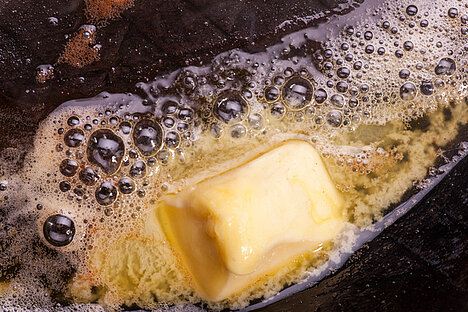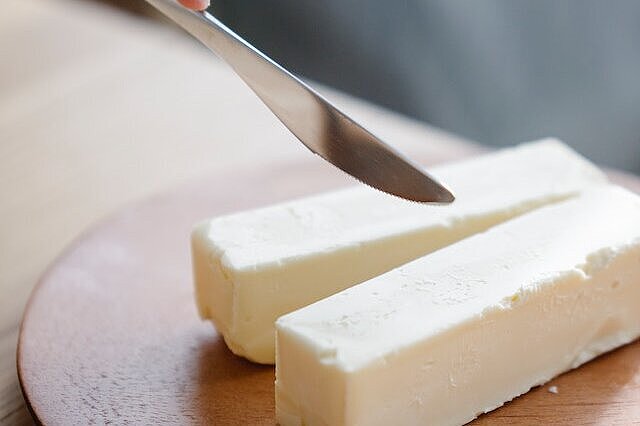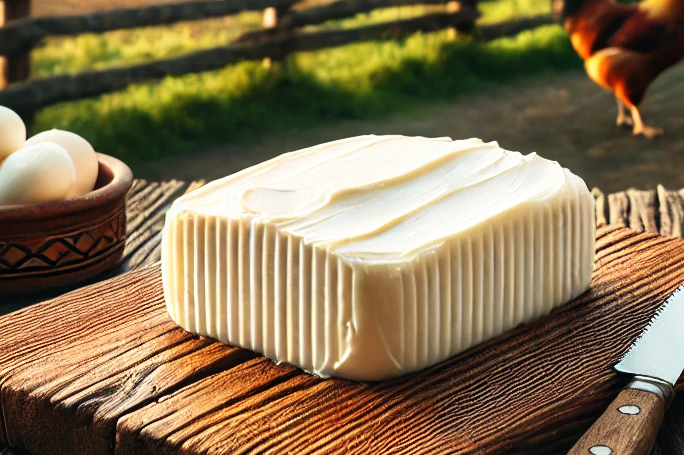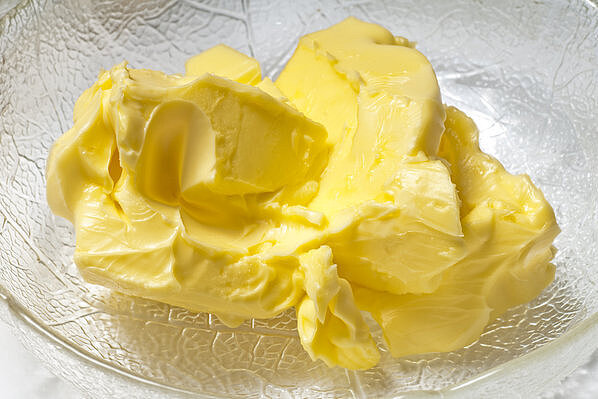Fat

What is fat?
Fat isan organic compound consisting of glycerol and various fatty acids. Fat can exist as solid fat or as liquid oil, depending on how many saturated or unsaturated fatty acids it contains. Saturated fatty acids have no double bonds between the carbon atoms, while unsaturated fatty acids have one or more double bonds. Unsaturated fatty acids are mostly of vegetable origin, saturated fatty acids are mostly of animal origin.
What functions does fat have in the dog's body?
Fat has several important functions in the dog's body:
- Fat is a source of energy, providing more than twice as many calories per gram as proteins or carbohydrates. Fat is mainly burned during prolonged physical activity.
- Fat is a building block for cell membranes, hormones and nerve cells. Fat is therefore essential for cell health, reproduction and communication in the nervous system.
- Fat is a carrier for fat-soluble vitamins (A, D, E, K), which dogs can only absorb with fat. These vitamins are important for vision, bone formation, skin health and blood clotting.
- Fat is a flavor carrier that makes the food more palatable for the dog. Fat also stimulates the production of bile acid, which promotes fat digestion.
What are the benefits of fat for dogs?
Fat has several benefits for dogs when fed in the right quantity and quality:
- Fat can improve the performance and endurance of dogs that exercise or work a lot. Fat provides them with the energy they need to stay active for a long time.
- Fat can nourish the coat and skin of dogs by providing them with essential fatty acids. Essential fatty acids are those that dogs cannot produce themselves and must obtain from their diet. These include omega-3 and omega-6 fatty acids in particular, which have an anti-inflammatory, immune-boosting and cell-protecting effect.
- Fat can increase the feeling of satiety in dogs by delaying gastric emptying and releasing hormones that signal to the dog that it has eaten enough. Fat can therefore help to regulate a dog's weight if it is not overdosed.
What are the disadvantages of fat for dogs?
Fat also has some disadvantages for dogs if it is fed in the wrong quantity or quality:
- Fat can lead to overweight and obesity in dogs if fed too much or too often. Obesity is a serious health problem for dogs that can lead to diabetes, cardiovascular disease, joint problems and a shortened life.
- Fat can cause indigestion and diarrhea in dogs if it is fed too quickly, too cold or in too large quantities. Fat is harder to digest than other nutrients and requires the production of bile acid in the liver, which aids fat digestion in the intestines. If there is not enough bile acid or the fat enters the intestine too quickly, fat intolerance can occur, resulting in bloating, abdominal pain and diarrhea.
- Fat can lead to a deficiency of other nutrients in dogs if it is fed too much or too one-sidedly. Fat can affect the absorption of other nutrients such as proteins, carbohydrates, minerals and vitamins if it makes up the majority of the diet. Fat can also disrupt the balance between the different fatty acids if it contains too much or too little omega-3 or omega-6 fatty acids. This can lead to inflammation, skin problems, immune disorders and other diseases.
How much and what type of fat should a dog get?
The optimal amount and quality of fat for a dog depends on various factors, such as the dog's age, weight, activity level, health status and individual needs. A general recommendation is that a healthy dog diet should contain between 10-15% fat. Most commercially available dry food is also within this range. For wet food and treats, however, a fat content of up to 60% is common. You should therefore make sure that your dog does not get too many high-fat snacks that exceed its calorie budget.
The quality of fat for a dog depends above all on the composition of the fatty acids. Animal fat contains more saturated fatty acids and is easier for dogs to digest than vegetable fat. Vegetable fat contains more unsaturated fatty acids, which are also important for a dog's health, especially the essential omega-3 and omega-6 fatty acids. These should be in a balanced ratio of around 1:5 to 1:10. Good sources of omega-3 fatty acids include salmon oil, linseed oil and walnut oil. Good sources of omega-6 fatty acids include sunflower oil, safflower oil and corn oil.
Fat is an important ingredient in a dog's diet that has many benefits for their health and well-being when fed in the right quantity and quality. However, fat should also not be overdosed or neglected, as it can otherwise lead to obesity, digestive problems or deficiency symptoms. You should therefore always pay attention to your dog's individual needs and offer him a balanced and varied diet that contains all the nutrients he needs.
If you notice any signs of hypersensitivity or poisoning in your dog, you should see your vet immediately. We are not a substitute for a vet, but we try to be as accurate as possible. Every dog reacts differently and we recommend you get a second opinion or consult your vet if in doubt.
Stay healthy and take good care of your four-legged friend!😊
Similar to Fat
Butter is a fat that is made from the cream of cow's milk. The fat droplets are combined into a solid mass by beating or churning the cream. The remaining liquid is called buttermilk. Butter has a...
There are many different oils that differ in their origin, composition and effect. Some of the best-known oils are Olive oil: The oil pressed from olives is rich in monounsaturated fatty acids and...
Lard is not generally toxic to dogs, but it can cause serious health problems if it is fed in too large quantities or too frequently. The main risks are: Gastrointestinal discomfort: Lard is very...
Vegetable margarine is a spreadable fat made from vegetable oils. The oils are partially hardened to achieve a firm consistency. However, this can also produce unhealthy trans fats, which can...



